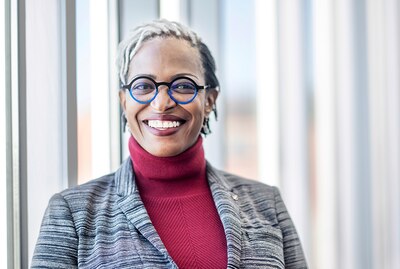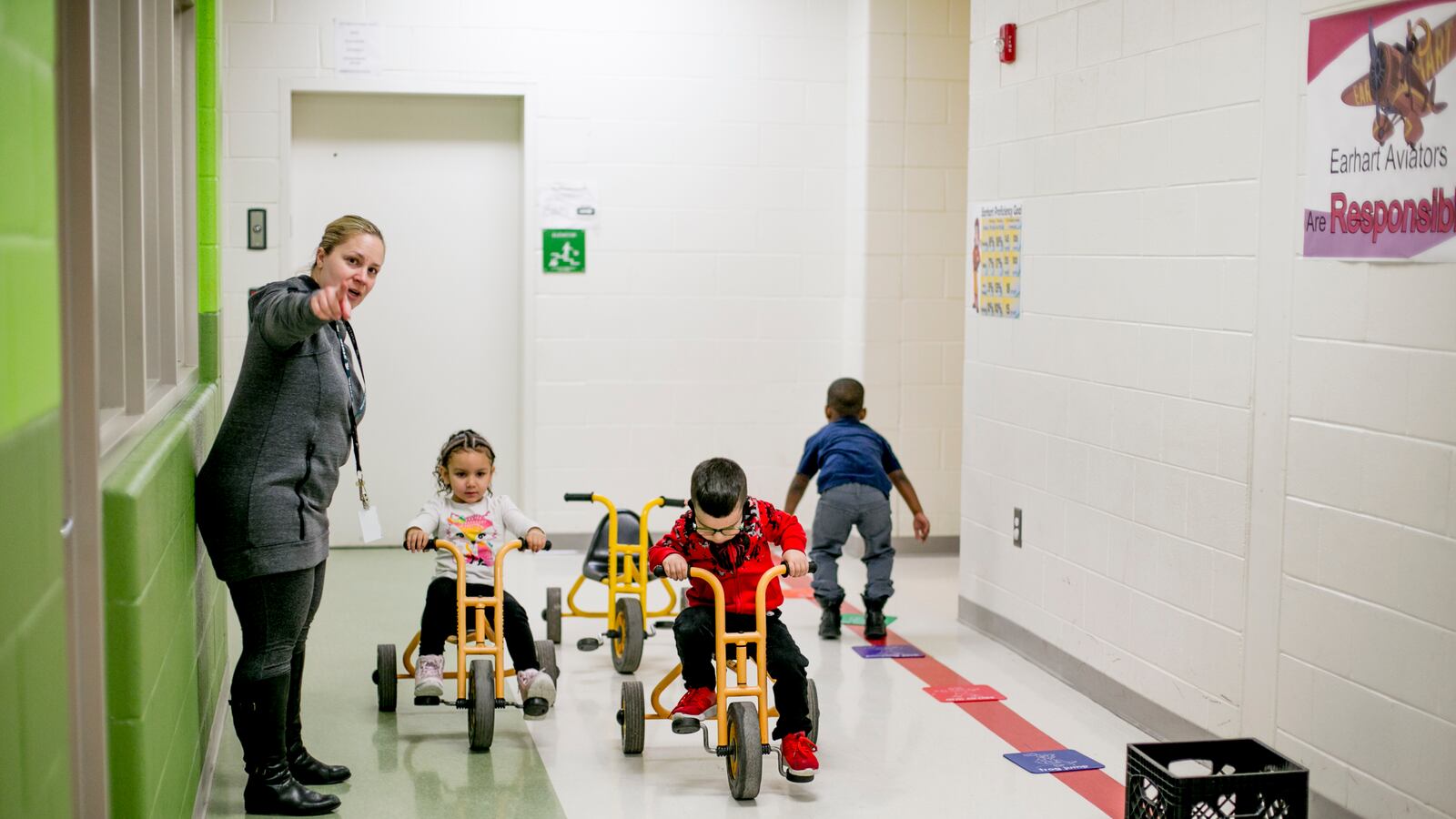Last year, Denise Smith traveled to Reggio Emilia, a province in northern Italy famous for its parmesan cheese.
And its preschools.
Smith, a veteran early childhood educator, helped bring Reggio’s focus on hands-on, student directed learning to the Detroit area, and she wanted to see the original in action.
Smith said she was stunned by the community’s commitment to the program.
“Everybody knows where the schools are, and that they’re a part of the schools,” Smith said. “From the restaurant owner to the police officer to the mom who doesn’t have children — everybody.”
“That’s what I want to see here.”
There is no one in a better position than Smith to make that happen. As the new implementation director of Hope Starts Here, Smith has a seat at the tables where those policies are being made. Hope Starts Here is a $50 million initiative to improve early childhood education in Detroit led by the W.K. Kellogg and Kresge Foundations. (Both are Chalkbeat funders.)
The effort comes amid a growing consensus that early education plays a crucial role in preparing children for kindergarten and beyond, especially for students from low-income families.
Nearly three decades ago, Smith started her early education career providing child care in her home. She went on to help build Michigan’s child care rating system and lead an early childhood coalition in Flint.

She takes on her new role at a potentially pivotal moment, as Mayor Mike Duggan negotiates with Republican lawmakers to offer free preschool to every 4-year-old in Detroit as soon as next year. Yet she recognizes that creating an early education system as strong as Reggio’s is a long game.
We spoke with Smith about the biggest challenges facing early education in Detroit, and about what it will take to overcome them.
Our conversation has been edited for length and clarity.
Hope Starts here spent its first year supporting existing programs. Now the initiative is opening a high-profile $15 million early childhood center at the School at Marygrove. What’s next?
We intend to have least three other prototypes. We’re definitely looking to see not only can we bring additional high quality programs online, but even prototype some that are more affordable than, say, the Marygrove project.
And can you say anything more about what those might look like?
The goal is really to develop a model that’s more affordable and replicable. So that as we think about filling the gaps in the number of seats available to children, we can do it in a way that’s much more expeditious than it currently is.
What are the major roadblocks facing early childhood in Detroit?
Even with a current potential for the city to get some slots under the governor’s plan for universal pre K, you always have to ask, how are we going to staff it? Talent is a huge concern. We don’t pay these folks anywhere near what they should receive, so it’s hard to attract and retain them. It’s a conversation that I have everywhere I go: How can we address wage?
What kinds of answers do you get to that question?
Other states have tried some things like tax incentives and bonuses. There are examples out there, we just need to think about what works in this context and what it would take to get it over the finish line.
Any other major challenges?
Facilities is one, which is one reason why there are deserts where there are no early childhood programs. So we’re thinking about all of the pieces in this current environment. With the facility issues and concerns that DPSCD has, you know, is there [building] stock that could be used for early childhood instead? Is there potential for charter stock to be used in this way so it has dual benefit?
Do you think Duggan’s universal pre-K plan is going to happen for real?
It looks promising. But one of the things that those slots could do, if not done in a very intentional and thoughtful way, is disrupt the early childhood landscape, even if only by perception. Because every time a program that’s bright and shiny and new [arrives], providers who are already doing the work feel anxious that they’re going to lose their clients because this bright, shiny and new thing is there.
And it goes back to what I was saying before: Do we have enough staff? Are we going to pull talent from our existing programs in order to be able to fill these slots? How do we do that in a way that we’re not creating that kind of rush. How do you make sure that you are supporting the entire landscape with particular workforce development opportunities?
You have a wide range of experience with early childhood education. Will you talk about the experiences that you bring to your new role?
I’m raising my niece, who is 9. She was born with drugs in her system. She had that to overcome — a lot of physical strife in the very beginning. [But she] has read two grade levels ahead all the time since she started being tested. We poured a lot of time and energy into her, and so when folks talk about whether this early childhood stuff works or not, I would say yes, not only because of what I’ve learned from books, but from what I learned and know through experience.
Editor’s note: This story has been updated to correct the region of Italy that is famous for its preschools.

